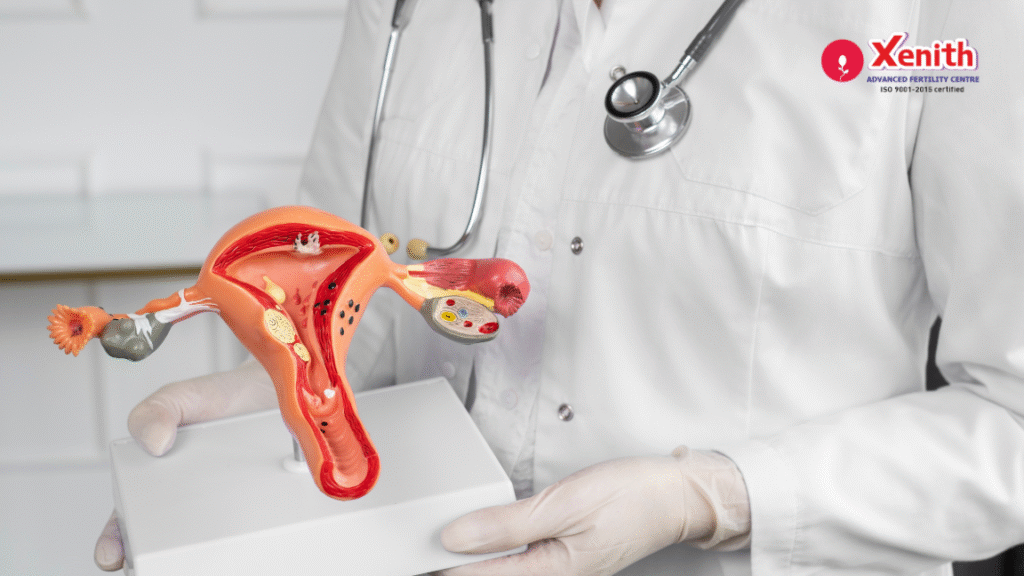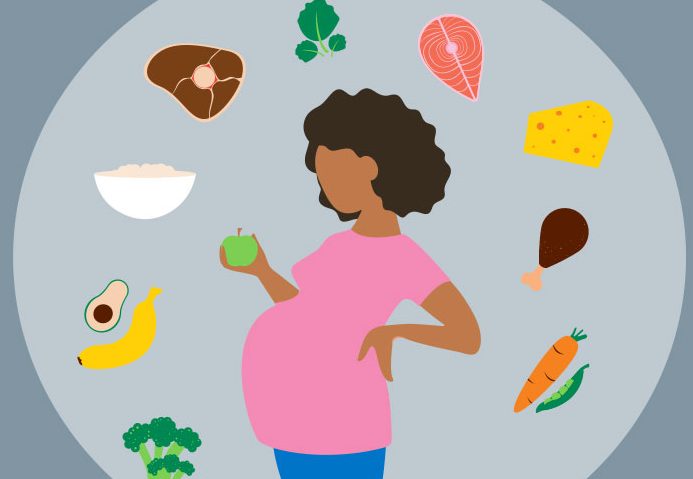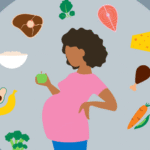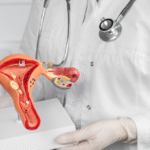Now Reading: A Fertility-Boosting Diet Plan for Women
-
01
A Fertility-Boosting Diet Plan for Women
A Fertility-Boosting Diet Plan for Women
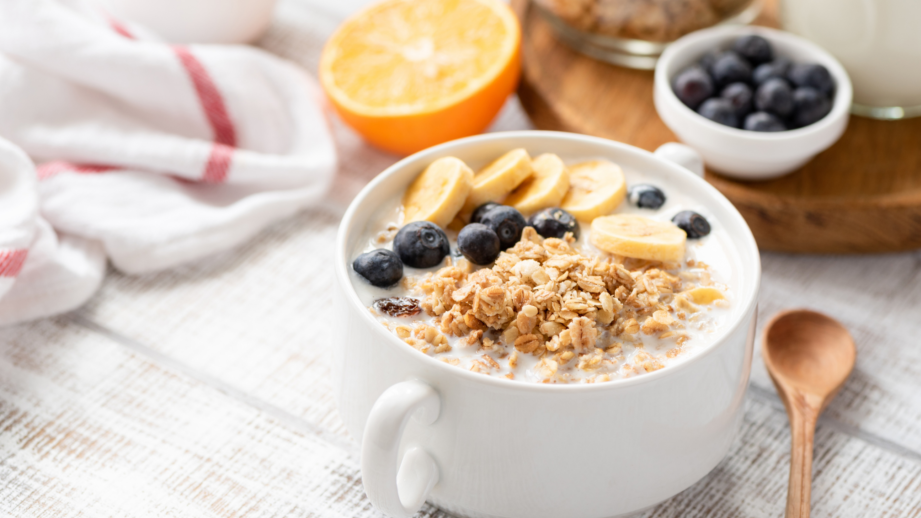
Boosting fertility can be a focus for many women. Diet plays a key role in this journey.
Understanding how food affects fertility helps women make informed choices. A fertility-boosting diet plan offers a natural approach. It involves selecting nutrient-rich foods that support reproductive health. This plan focuses on wholesome ingredients. Fresh fruits, vegetables, and whole grains are essentials.
Healthy fats and lean proteins also play a part. These components work together to enhance the body’s natural fertility. The goal is to create balance and nourishment. By following a thoughtful diet plan, women can improve their chances of conception. It’s about empowering women with knowledge and choices. This blog will explore dietary changes that can support fertility. Discover the foods that may help in your fertility journey.
Introduction To Fertility And Diet
Understanding how diet affects fertility can be empowering for women. Food choices can influence reproductive health significantly. The journey to parenthood can be smoother with the right nutrition. Discover how diet plays a role in boosting fertility.
Connection Between Nutrition And Reproductive Health
Nutrition is a key factor in reproductive health. Vitamins and minerals support hormonal balance. Healthy fats are essential for hormone production. Antioxidants protect eggs from damage. A balanced diet can enhance fertility.
Common Misconceptions About Fertility Diets
Many believe only supplements can boost fertility. Whole foods are equally important. Some think only women need fertility diets. Men also benefit from healthy eating. It’s a myth that fertility diets are complex. Simple changes make a big difference.
Essential Nutrients For Fertility
When you’re trying to boost your fertility, focusing on essential nutrients is key. These nutrients play a significant role in supporting reproductive health. By paying attention to what you eat, you can make a positive impact on your fertility journey.
Role Of Folate And Folic Acid
Folate, a natural form of vitamin B9, and its synthetic counterpart, folic acid, are vital for women hoping to conceive. They help with cell division and the formation of DNA. Without enough folate, the risk of birth defects can increase.
Consider adding foods like leafy greens, legumes, and citrus fruits to your diet. They are rich in folate and can easily be included in daily meals. Some women prefer taking a folic acid supplement to ensure they meet their daily needs.
Have you ever thought about how a simple vitamin could influence your fertility? It’s powerful to know that something as small as a nutrient can make such a big difference.
Importance Of Omega-3 Fatty Acids
Omega-3 fatty acids are another crucial element for fertility. They support hormone production and improve blood flow to the reproductive organs. This can create a more favorable environment for conception.
Fish like salmon and sardines are excellent sources of omega-3s. If you’re not a fan of fish, walnuts and flaxseeds are good plant-based alternatives. You might also consider an omega-3 supplement to fill any gaps in your diet.
How often do you think about the fats you consume? The right kind can do wonders for your reproductive health.
Incorporating these nutrients into your diet doesn’t have to be overwhelming. With a few simple changes, you can support your body in the best way possible. What small steps will you take today to boost your fertility?
Foods To Include
Boosting fertility through diet involves making mindful food choices. Including specific foods can enhance reproductive health. A fertility-boosting diet offers essential nutrients. These nutrients support hormone production and improve overall health. Let’s explore key foods to include in your diet.
Fruits And Vegetables Rich In Antioxidants
Fruits and vegetables provide antioxidants. These help protect cells from damage. Leafy greens like spinach and kale are excellent choices. Berries such as blueberries and strawberries are also rich in antioxidants. Include a variety of colors in your diet. This ensures a range of nutrients and antioxidants.
Whole Grains And Their Benefits
Whole grains offer vital nutrients for fertility. They contain fiber, which aids digestion. Whole grains also stabilize blood sugar levels. Brown rice, quinoa, and oats are good options. These grains provide energy and essential vitamins. Consider swapping refined grains for whole grains. This switch can support reproductive health effectively.
Foods To Avoid
Certain foods may hinder fertility. Processed foods, high in sugar and trans fats, can affect hormone balance. Alcohol and caffeine may also negatively impact reproductive health.
Embarking on a fertility-boosting diet is a journey toward enhancing your chances of conception. While adding nutrient-rich foods is crucial, knowing what to avoid is equally important. Certain foods can harm your fertility more than you might think. Let’s dive into foods that should be minimized or excluded from your diet.
Impact Of Processed Foods On Fertility
Processed foods are convenient but often loaded with additives, preservatives, and unhealthy fats. These components can disrupt hormonal balance.
Imagine reaching for a quick snack and unknowingly consuming chemicals that may affect your reproductive health.
Opt for whole foods instead. This small change can make a big difference in your fertility health.
Effects Of Excess Sugar And Caffeine
Excess sugar can lead to insulin resistance, which might disrupt ovulation. Think about the hidden sugars in your favorite drinks and snacks.
Caffeine is another culprit that might affect fertility. Studies suggest more than 200 milligrams daily can be risky. That’s about two cups of coffee.
Consider cutting back and swapping with herbal teas. How would your daily routine look with less sugar and caffeine?
Try experimenting with natural sweeteners or caffeine-free beverages. Your body might thank you with improved fertility.
Meal Planning Tips
Planning meals that support fertility can be a transformative journey for many women. It’s not just about eating certain foods; it’s about creating a balanced routine that nurtures your body and mind. Let’s dive into practical tips that can help you craft a fertility-boosting meal plan.
Creating Balanced Meals
Balance is key to any meal plan, especially for fertility. You should aim to include a mix of proteins, healthy fats, and whole grains in each meal. This mix helps regulate hormones and provides energy. Imagine starting your day with a breakfast of scrambled eggs, avocado, and whole-grain toast. This combination offers protein, healthy fats, and fiber—setting a solid foundation for your day.
Consider adding more greens and colorful vegetables to your lunch and dinner. These foods are rich in antioxidants, which are crucial for reproductive health. If you’re having grilled chicken for dinner, pair it with a side of roasted vegetables and quinoa. This meal is not just delicious; it’s packed with nutrients that your body will thank you for.
Snacking Smartly
Snacking can be a pitfall if not done wisely. Choose snacks that contribute positively to your fertility goals. Nuts and seeds are excellent choices. They are rich in omega-3 fatty acids, which support hormone balance. Grab a handful of almonds or pumpkin seeds when you feel peckish.
Fruits can also be your ally. They are loaded with vitamins and minerals. An apple or a small bowl of berries can be refreshing and satisfying between meals. Ask yourself, are your current snacks helping your fertility or hindering it?
Think about how you can prepare these snacks ahead of time. This foresight can prevent reaching for less healthy options when hunger strikes. Keep your pantry stocked with nutrient-rich snacks and you’ll find it easier to stick to your plan.
By adopting these meal planning tips, you can make your fertility journey a little less daunting and a lot more delicious. What changes can you make today to support your fertility goals?
Lifestyle Changes For Enhanced Fertility
Enhancing fertility involves more than just a healthy diet. Lifestyle changes play a crucial role in boosting fertility for women. Simple changes in daily habits can make a significant difference. Let’s explore some lifestyle adjustments that can enhance fertility.
Exercise And Physical Activity
Regular exercise improves overall health and boosts fertility. Engaging in physical activities helps maintain a healthy weight. It enhances blood circulation and balances hormones. Aim for at least 30 minutes of exercise, five times a week. Walking, swimming, and yoga are excellent choices. Avoid excessive exercise, as it can harm fertility.
Managing Stress And Sleep
Stress negatively impacts fertility. Finding ways to relax is essential. Practice meditation or deep breathing exercises daily. These activities reduce stress levels effectively. Sleep is equally important. Aim for seven to nine hours of sleep each night. A well-rested body functions better and supports reproductive health. Create a calming bedtime routine to improve sleep quality.
Supplements And Herbal Remedies
Supplements and herbal remedies can play a vital role in fertility. Many women seek natural ways to boost their reproductive health. Certain supplements and herbs are known for their beneficial effects. They support overall well-being and fertility. Knowing what to take can make a difference in your journey.
Popular Fertility Supplements
Several supplements are popular for fertility. Folic acid is essential. It promotes cell growth and supports healthy pregnancies. Omega-3 fatty acids improve hormone balance. They support fetal development and brain health.
Coenzyme Q10 enhances egg quality. It boosts energy production in cells. Vitamin D is crucial for regulating menstrual cycles. It supports healthy hormone levels. Zinc aids in fertility by improving hormone function. It also supports immune health.
Herbs That Support Reproductive Health
Herbs can naturally support reproductive health. Maca root balances hormones. It improves energy and mood. Red raspberry leaf strengthens the uterus. It supports regular menstrual cycles.
Chaste tree berry helps regulate hormones. It is known for easing menstrual discomfort. Ashwagandha reduces stress and balances hormones. It also boosts overall vitality. Dong quai improves circulation. It enhances uterine health and supports hormone balance.
Success Stories And Testimonials
Success stories and testimonials inspire hope and confidence. Many women share their journeys. They explain how dietary changes improved their fertility. These stories offer valuable insights. They show real experiences and outcomes. For many, hearing others’ success stories brings comfort and motivation. Testimonials often highlight the emotional journey alongside physical changes. They emphasize the importance of perseverance and belief in the process.
Personal Journeys Of Dietary Changes
Jane from New York struggled with infertility for years. She decided to try a fertility-boosting diet. Jane focused on whole foods and reduced processed sugars. In six months, she noticed positive changes. Her energy levels improved. Her cycles became more regular. Eventually, Jane was overjoyed to announce her pregnancy. Her story encourages others to explore dietary changes.
Another inspiring story is from Lisa in California. Lisa had been trying to conceive for a long time. After consulting with a nutritionist, she began a fertility-focused diet. Lisa included more leafy greens and healthy fats. She saw improvements in her mood and overall health. Her journey culminated in the birth of her daughter. Lisa’s testimonial stresses the importance of patience and consistency.
Expert Opinions On Fertility Diets
Experts agree that diet impacts fertility. Dr. Sarah, a nutritionist, emphasizes the role of balanced meals. She suggests incorporating antioxidant-rich foods. These can improve reproductive health. Dr. Sarah notes the importance of whole grains and lean proteins. They provide essential nutrients for hormone balance.
Dr. Michael, a fertility specialist, supports these views. He believes dietary changes are beneficial. Dr. Michael recommends avoiding trans fats and excessive caffeine. He highlights the value of omega-3 fatty acids. Omega-3s are known for supporting hormonal health. Both experts stress the importance of tailored diet plans. Individual needs vary, and a personalized approach is best.
Frequently Asked Questions
What Foods Increase Fertility In Women?
Foods that boost fertility in women include leafy greens, berries, whole grains, nuts, seeds, and fatty fish. Consume foods rich in antioxidants, folate, zinc, and omega-3 fatty acids. Avocados, beans, and lentils are also beneficial. Maintaining a balanced diet supports reproductive health.
What Diet Is Best When Trying To Conceive?
Eat a balanced diet rich in fruits, vegetables, lean proteins, whole grains, and healthy fats. Include folic acid, iron, and omega-3 fatty acids for fertility support. Limit caffeine, alcohol, and processed foods for optimal health. Staying hydrated is essential for overall well-being.
Consult your doctor for personalized advice.
What To Drink To Increase Fertility?
Drink green tea to boost fertility. It contains antioxidants that improve reproductive health. Consider pomegranate juice for its fertility-enhancing nutrients. Add whole milk for essential vitamins. Stay hydrated with water for optimal body function. Consult a doctor for personalized advice.
How Do I Boost My Fertility As A Woman?
Eat a balanced diet rich in fruits, vegetables, and whole grains. Maintain a healthy weight. Exercise regularly, but avoid excessive workouts. Manage stress through meditation or yoga. Consult a healthcare professional for personalized advice and consider prenatal vitamins. Avoid smoking, excessive alcohol, and caffeine.
Conclusion
Eating a balanced diet supports fertility. Fresh fruits and vegetables provide essential nutrients. Whole grains and lean proteins boost energy levels. Healthy fats, like those in avocados, aid hormone production. Drinking plenty of water keeps the body hydrated. Limiting processed foods and sugar improves health.
Small changes can make a big difference over time. Consistency is key. Listen to your body and adjust as needed. A nutritionist or doctor can offer guidance. Supporting your body with the right foods can enhance fertility naturally. Prioritize health and well-being.
Every step counts towards your goal.






